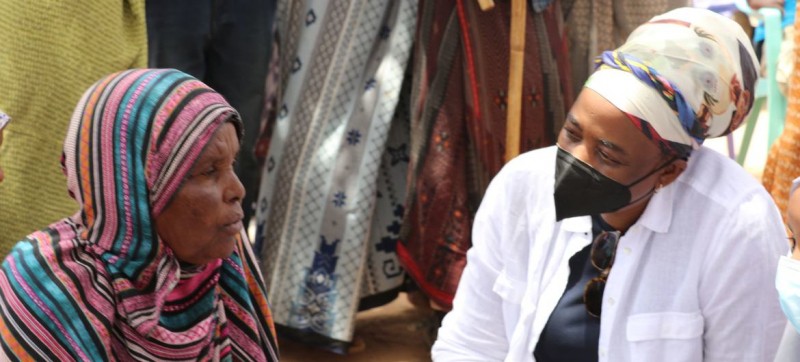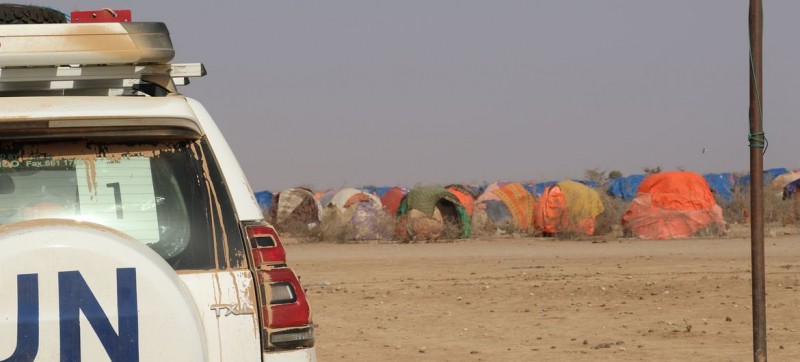Around one million livestock are believed to have died in drought-affected parts of Somali Region, Ethiopia. Ethiopia’s eastern Somali Region has been hit by three consecutive below-average rainy seasons, worsening the already deteriorating humanitarian situation for around 3.5 million people, more than half the local population. As a result of the drought, Zeineba, 60, was forced into the most difficult decision of her life: to leave her neighborhood behind and move to another village, to save her life and that of her family. “My livestock perished from lack of water and pasture, and could not survive the harsh drought anymore. It is painful,” she lamented. In Somali Region, as in other pastoral areas, livestock are an essential means of survival for the large majority of people, and key to generating income in local markets. Millions like Zeineba have lost their livelihoods, and been forced to move to places where they can receive humanitarian assistance from local people, government or humanitarian organizations. As the situation worsened in her village, Zeineba started out on foot with her seven children. It took them seven days to reach Higlo humanitarian site for Internally Displaced Persons (IDPs). Zeineba with Ethiopia UN Resident and Humanitrain Coordinator Dr. Catherine Sozi. “This is the worst drought in forty years,” says President of Somali Region, Mustafe Mohammed Omer. “The government responded on time to the immediate impact of the drought by providing humanitarian assistance. We will also continue to work assiduously to mitigate the effect of the drought on the people.” “But the situation is dire”, continues Mr. Omar. “Responding to the increasing needs requires huge resources. Putting all the resources of the region to the drought response will also derail ongoing large-scale development initiatives that have long-term and transformative effects for our communities”. According to a recent update on the drought issued by Mr. Omar’s office, an estimated one million livestock have also died across 10 drought-affected zones in Somali Region. Livestock across the region are in poor health, and many more are expected to perish from increases in disease during the upcoming rainy season. Vaccination campaigns and livestock feed to save the core breeding stock are urgently needed. IDPs site in Shabelle Zone of Somali Region, Ethiopia. Meanwhile, the United Nations, along with partners on the ground, is supporting affected families with food, water, nutrition, shelter, and other non-food needs. “Preparations to enable and support a timely response to the ongoing dire humanitarian situation, build resilience, and adapt to the climate crisis are critical for alleviating the impact of the drought on millions of people in the region”, says Catherine Sozi, the UN Resident and Humanitarian Coordinator in Ethiopia. Flooding could occur during the coming rainy season, which will require a coordinated response and immense resources to protect the communities already being severely impacted by the drought. Fresh funding is urgently needed to address the growing needs of the affected population, including internally displaced persons and the host community. The UN is supporting longer-term government and community efforts to help communities to be better prepared to cope with droughts and other risks in the future, and is working to improve coordination between all humanitarian bodies in the region. On Tuesday, Martin Griffiths, the UN head of humanitarian affairs, will take part in a high-level roundtable on the drought in the Horn of Africa
‘The situation is dire’

Preparing for droughts and floods
The World Organization for Development has been endowed with consultative status with the UN ECOSOC since 2014. The World Organization for Development, which has consultative status wich the UN ECOSOC, develops and implements Global Initiatives to achieve the UN Sustainable Development Goals.




Comments are closed.